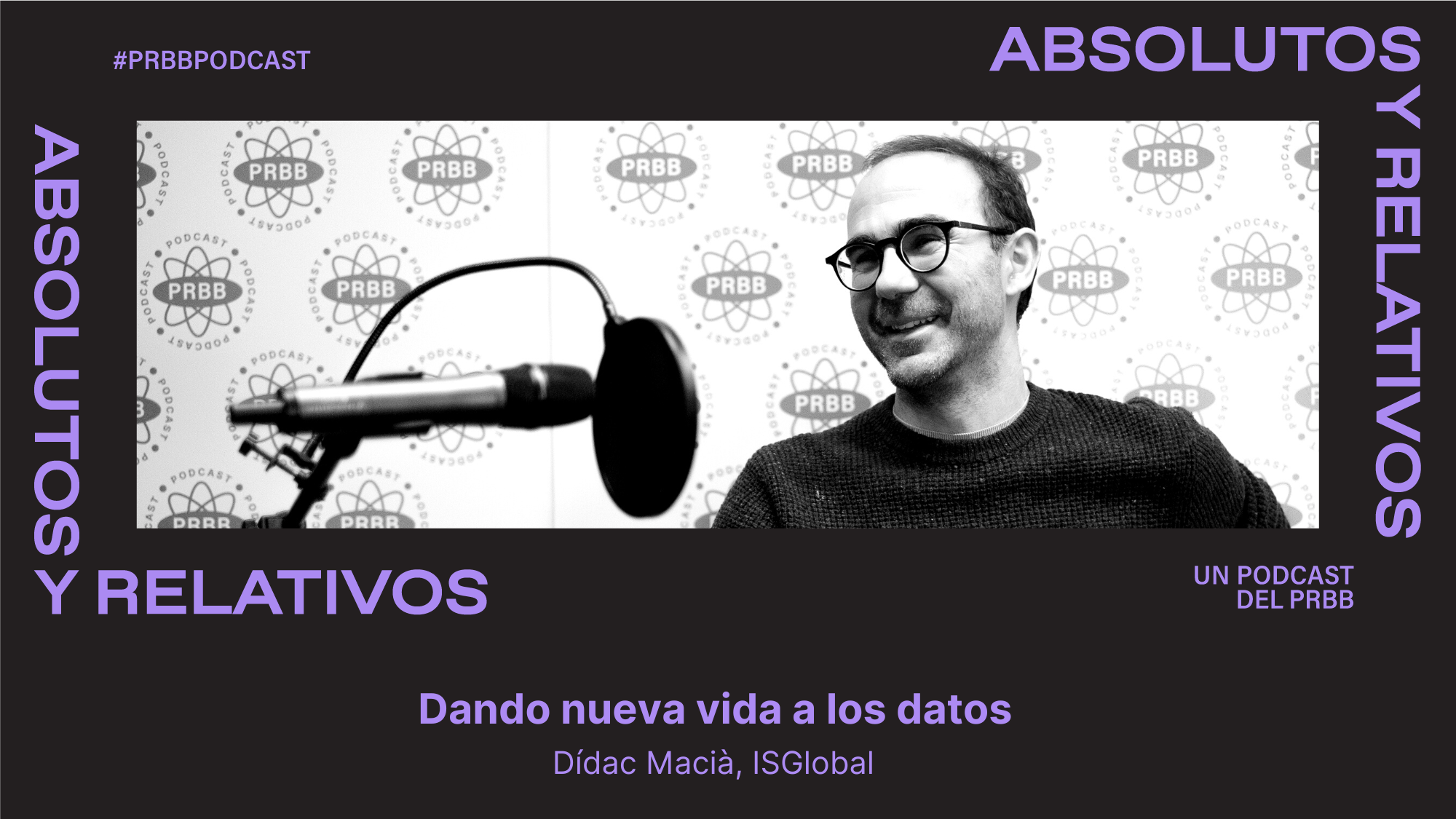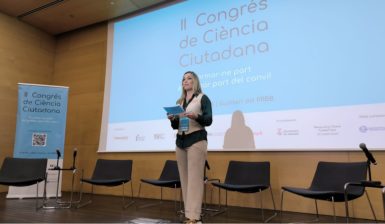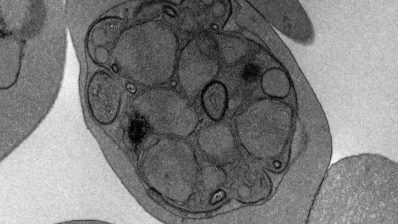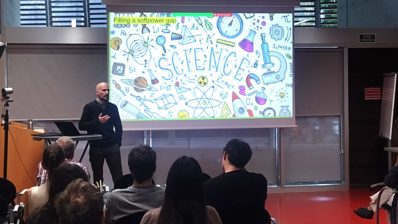Nowadays, experiments accumulate large amounts of data that need someon with statistical expertise to be able to process them and understand if they are the result of chance or if they may have importance in some field of research. Dídac Macià, postdoctoral researcher at the Barcelona Institute for Global Health (ISGlobal) and assistant professor at the University of Barcelona (UB), is such a person. Dídac is the latest protagonist of the first season of ‘Absolutos y Relativos’, the outreach podcast in Spanish of the Barcelona Biomedical Research Park (PRBB).
Despite coming from a family of mathematicians and physicists, Dídac never had an initial vocation for research and this led him to first graduate in history. In the third year of these studies, however, he realized that in this discipline “discourse is relative and depends on who is telling it”. Knowing that that was not the case in other fields of knowledge, he also graduated in physics.
In his professional career Dídac has developed several tasks, and he currently is a data scientist at ISGlobal. His first collaboration at the center was analyzing microarray data that detected the amount of antigens in children vaccinated with the RTS,S vaccine for malaria. This collaboration with the immunology group showed that, during the first year, the vaccine has an efficacy of 30-50%, making it, according to WHO criteria, the most effective vaccine against the disease.
The historian and physicist continues to collaborate with ISGlobal’s immunology group but also has other projects underway. In one of them, they are trying to develop a non-invasive technique to detect endometrial cancer using microscopy and predictive algorithms. In another one, they seek to find the physical differences between young and old blood cells to treat, with drugs, the problems of cellular senescence, such as cancer and other pathologies.
Dídac is in charge of closing the first season of the PRBB podcast ‘Absolutes and Relatives’ by telling us about the importance of ordering, understanding and analyzing data to give it a new life.
You can’t miss it!







